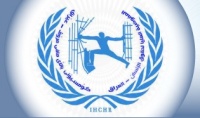Home » Reports » IRQ - News » Iraq: National Human Rights Institution Gets B Status to Mark Non-Compliance with International Standards
The main issues raised by the SCA were (1) the IHCHR's lack of activities to promote human rights in the country, (2) its failure to ensure both a pluralist representation of the Iraqi society and its independence from government and political parties, (3) the lack of sufficient funds to carry out its mandate, and (4) the need to establish an effective cooperation with other human rights bodies –four issues that were raised in more details by Alkarama and five Iraqi human rights organisations in the joint report they sent to the SCA in December 2014, describing the IHCHR as an "empty box" that had "not in any way played the role expected of a national human rights institution. Its lack of independence, its composition and official activities do not allow it to ensure an effective and efficient role in promoting and protecting human rights in the country."
1. Mandate: Limited promotional activities
Although the mandate of an NHRI is to promote a culture of rights through formation and education and by making use of the media – as required by principles 1 and 3 of the Paris Principles on the competence and responsibilities of an NHRI – the SCA noted in its report that "the range of promotional activities undertaken by the IHCHR to date has been limited".
In order to fulfil this role, the Iraqi NHRI was therefore encouraged "to undertake a wider range of promotional functions including through education, training, public outreach and advocacy." These activities are of the utmost importance considering that major human rights violations in Iraq are the result of ethnic and sectarian strife as well as widespread discrimination.
2. Law: Failure to ensure pluralist representation of society and independence from government or political parties
Although the Paris Principles require that the composition of an NHRI and the appointment of its members "be established in accordance with a procedure which affords all necessary guarantees to ensure the pluralist representation" of civil society involved in the promotion of human rights, the SCA noted that Iraqi law "does not specify how many members from each segment of society are to be included in the committee," leaving "open the possibility that this committee will be comprised predominantly of government representatives," as shown by the fact that only two representatives of civil society were present on the selection committee.
Moreover, the SCA noted that "the law does not include a provision to address a situation where members have actual or perceived conflicts of interest," thereby failing to ensure its independence. In the December joint-report, Alkarama and its partners had raised the same issue in more details, after observing that during the appointment of its 15 members, political pressure and interference from the government and political parties had strongly influenced the choice of commissioners, who had been selected on the basis of their political affiliation rather than their competence.
The SCA therefore recommended that the IHCHR continue its "efforts to ensure the formalisation of a clear, transparent and participatory selection and appointment process for the NHRI's decision-making body in relevant legislation, regulations or binding administrative guidelines," and encouraged it to "advocate for amendments to the Law to ensure the process includes requirements for broad consultation and/or participation in the screening and selection process."
3. Inadequate funding and financial autonomy
The issue of the Iraqi NHRI's funding and financial autonomy was also addressed by the SCA, which noted with concern that the IHCHR had been required to operate without funding for the first half of 2013 and that, once it had started to receive funds from government, those had been insufficient to enable it to effectively carry out its mandate. In particular, and as pointed out in the December joint-report, this impacted the Iraqi HNRI's ability to open regional offices, an issue which "may be a concern in the context of Iraq, where vulnerable persons are often located in geographically remote parts of the country". As a consequence, the IHCHR remains inaccessible for most victims of serious abuses.
4. Need to establish an effective cooperation with other human rights bodies
Finally, highlighting that "regular and constructive engagement with all relevant stakeholders is essential for NHRIs to effectively fulfil their mandates," the SCA recommended that the IHCHR "develop, formalise and maintain working relationships, as appropriate, with other domestic institutions established for the promotion and protection of human rights, especially civil society and non-governmental organisations."
The Iraqi NHRI seems in fact totally disconnected from the Iraqi society, as illustrated in the joint-report by the fact that the IHCHR's 13 priority areas of work do not reflect the major human rights issues that should be addressed in the country, or that its only fact-finding missions were conducted in prisons where no human rights violation had been reported.
Welcoming the SCA report, Alkarama now hopes that the Iraqi High Commission for Human Rights (IHCHR) will take urgent measures to implement the recommendations issued by the SCA in order to become a truly independent institution working to effectively protect and promote human rights in the country. Alkarama will continue to monitor closely its actions in view of its next review in 2020.
For more information or an interview, please contact the media team at This email address is being protected from spambots. You need JavaScript enabled to view it. (Dir: +41 22 734 1008)
 Algeria
Algeria Bahrain
Bahrain Djibouti
Djibouti Egypt
Egypt Iraq
Iraq Palestine/Israel
Palestine/Israel Jordan
Jordan Kuwait
Kuwait Lebanon
Lebanon Libya
Libya Mauritania
Mauritania Morocco
Morocco Oman
Oman Qatar
Qatar Saudi Arabia
Saudi Arabia Sudan
Sudan Syria
Syria Tunisia
Tunisia United Arab Emirates
United Arab Emirates Yemen
Yemen Other Countries
Other Countries







